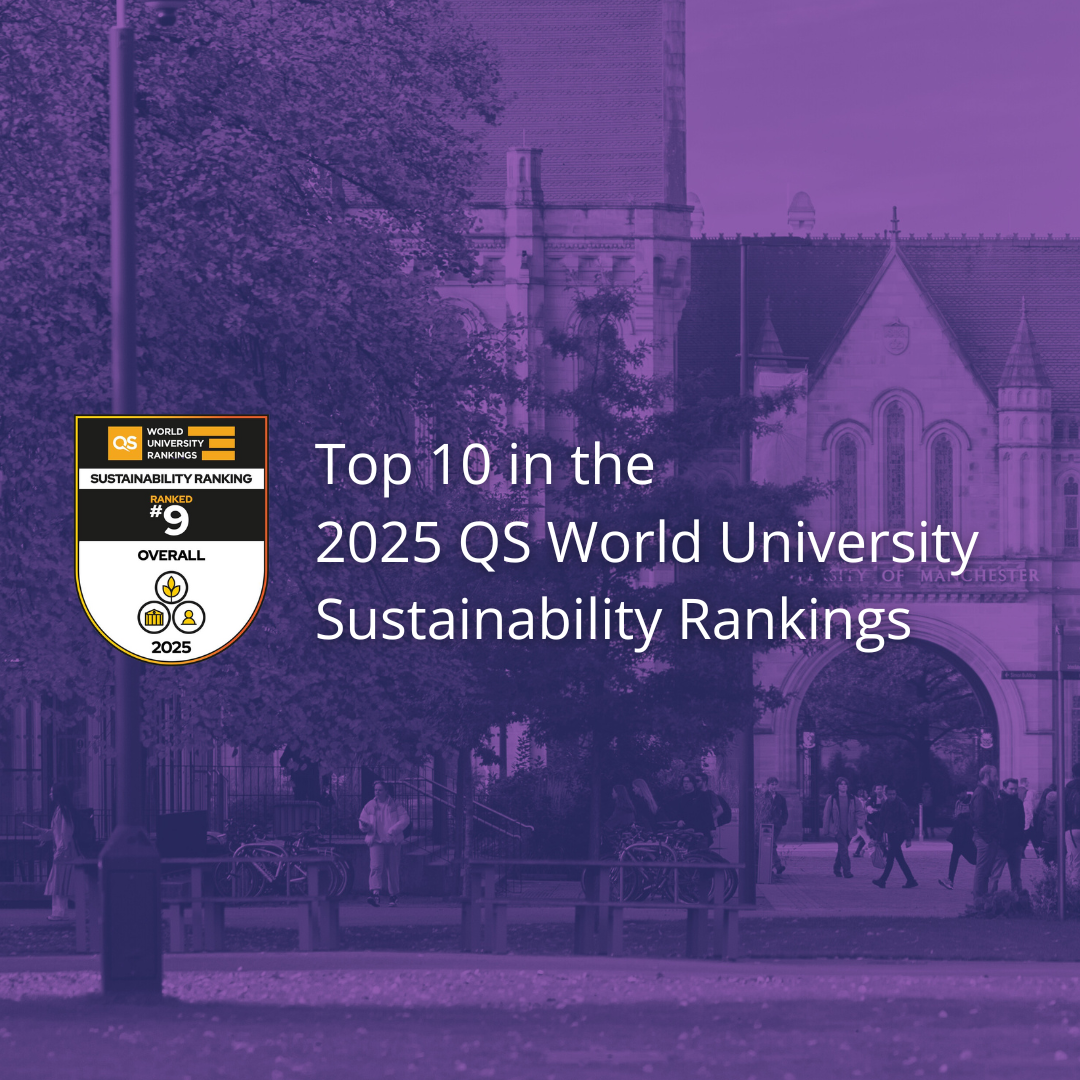The University of Manchester has reaffirmed its status as a global leader in sustainability by retaining its position in the top 10 worldwide in the 2025 QS World University Sustainability Rankings. These significant rankings evaluate universities based on Environmental impact, Social impact, and Governance (ESG).
With an overall score of 98.3 out of 100—an improvement from last year’s 98.0—the University ranks 9th out of 1,751 institutions, placing it within the top 1% of universities globally. This achievement builds on Manchester’s reputation as the only UK university to feature in the top 10 in both the QS Sustainability Rankings and the 2024 Times Higher Education Impact Rankings, which measure progress towards the vitally important UN Sustainable Development Goals (SDGs).
The UK has 26 universities in the top 100 globally and more top 10 universities than any other country or territory.
The QS Sustainability Rankings were launched in 2022, these rankings evaluate ESG performance through research, teaching, public engagement, and university operations, using data from policies, case studies, staff and alumni surveys, and research outputs.
The University’s strong position reflects the commitment to ongoing research excellence and the contributions of highly-cited researchers working towards the SDGs in areas such as the Manchester Environmental Research Institute, the Global Development Institute and the Sustainable Consumption Institute.
The University was able to demonstrate its commitment to equality, diversity, and inclusion through policies like the Dignity at Work and Study Policy and its ambitious 2038 Decarbonisation Plan, which includes a landmark deal to build a solar farm with 104,000 panels supplying 65% of the University’s electricity.
In teaching evaluations, our taught programmes have been recognised as highly valuable, such as the MSc in Climate Change, delivered by the School of Environment, Education and Development, to equip students to address climate and nature crises.
The University’s public engagement programmes, such as the award-winning Poverty Matters programme which engages communities to tackle pressing social issues like child poverty, contribute highly to the institution’s positive societal impact. Last year the University was also awarded a Platinum Watermark award by the National Co-ordinating Centre for Public Engagement (NCCPE), which recognises universities’ engagement with the public. Manchester is only the second university to be successful in achieving the Platinum award.
Dr Julian Skyrme, Executive Director of Social Responsibility and Civic Engagement, said: “This independent ranking by QS draws on a range of evidence of our social and environmental impact across research, teaching, public engagement, and university operations. This excellent result reflects the work of thousands of staff, students, alumni, and external partners and should be a source of pride for our whole community.”
Explore how The University of Manchester is advancing the UN Sustainable Development Goals by visiting our website.
Further details on the QS Sustainability Rankings’ methodology and weighting are available on the QS website.
